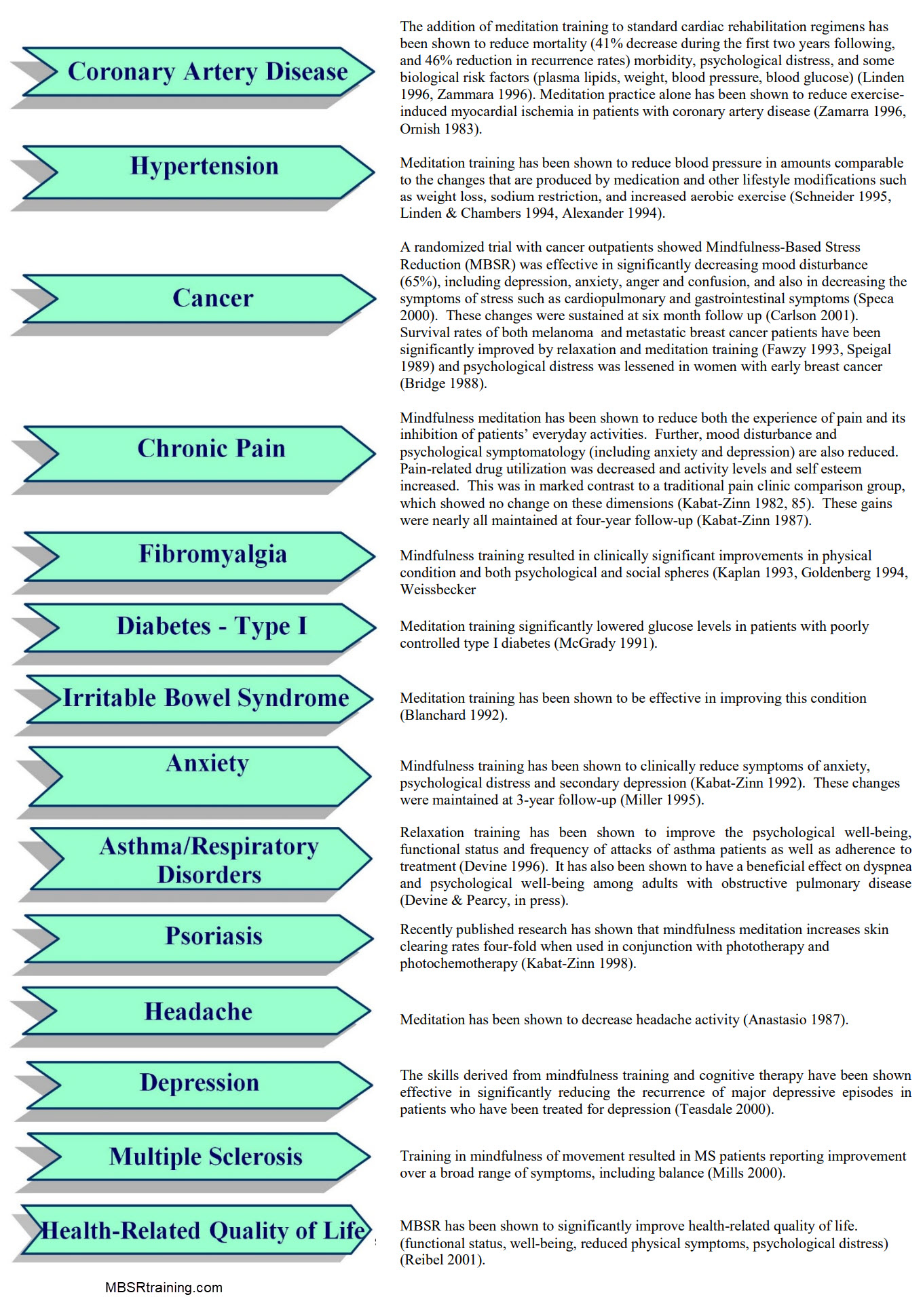MBSR Mindfulness Training Research
MBSR Mindfulness Training Research
Research Summary
Mindfulness-Based Stress Reduction Research
MBSR Mindfulness Training Research has repeatedly shown that meditation and relaxation training can be a powerful adjunct to the conventional medical treatment of many disorders. The Stress Reduction Program incorporates the critical elements of all these relaxation and meditation programs and takes the healing process an important step further.
A central feature of the program is the teaching of a gentle yet effective method that encourages the patient to develop a profound level of inquiry into the application of mindfulness (moment-to-moment, non-judgmental awareness) and mindfulness-based coping strategies in everyday life.
Patients in the program are taught to become aware of, and develop, their own resources to support their health, thus becoming more stress hardy, a quality that is associated with better health across the life span.
The Stress Reduction Program has been on the cutting edge of mind/body and integrative medicine for twenty-two years and represents participatory and integrative medicine at its best. Over 18,000 patients with all manner of diagnoses have successfully completed the eight-week course and 1,400 physicians have referred patients to this program. Published evaluations of the medical outcomes resulting from patient participation have shown a 35% reduction in the number of medical symptoms and a 40% reduction in psychological symptoms (stable over four years) (Kabat-Zinn 1982, 1985, 1986, 1992, 1998, Miller et al 1995, etc.).

Patients coming to the program are not separated by their referral diagnosis, so these outcome data apply across all the diagnostic categories that have been referred.
Stress and Patient Presentation
The American Academy of Family Physicians has estimated that up to two-thirds of all office visits to family doctors are for stress-related symptoms. Recent research has indicated that up to 60% of all HMO visits are made by people with no diagnosable disorder – the “worried well” (Sobel 1995) – and that many of these presenting symptoms are related to the patient’s psychosocial functioning – such things as depression, anxiety, social isolation, overwork, etc. (Kroenke & Mangelsdorff 1989). At least one-third of chest pain cardiology patients with normal or near-normal coronary arteries have been found to be suffering from panic disorder (Kushner 1989).
MBSR Mindfulness Training Research. Mindfulness training has been shown effective in addressing the malaise that often underlies these presentations (Kabat-Zinn 1982, 1985, 1986, 1992, Miller 1995, etc.), and further evidence of this can be seen in studies showing the reduced need for clinical services following meditation training (Kabat-Zinn,1987b, Hellman 1990, Caudill 1991a, 1991b, Tate 1994, Orme-Johnson 1994).
Since its inception in 1979, more than 18,000 people have completed the eight-week Mindfulness-Based Stress Reduction Program (MBSR) and learned how to use their innate resources and abilities to respond more effectively to stress, pain, and illness. The central focus of the SR Program is intensive training in mindfulness meditation and its integration into the challenges/adventures of everyday life.